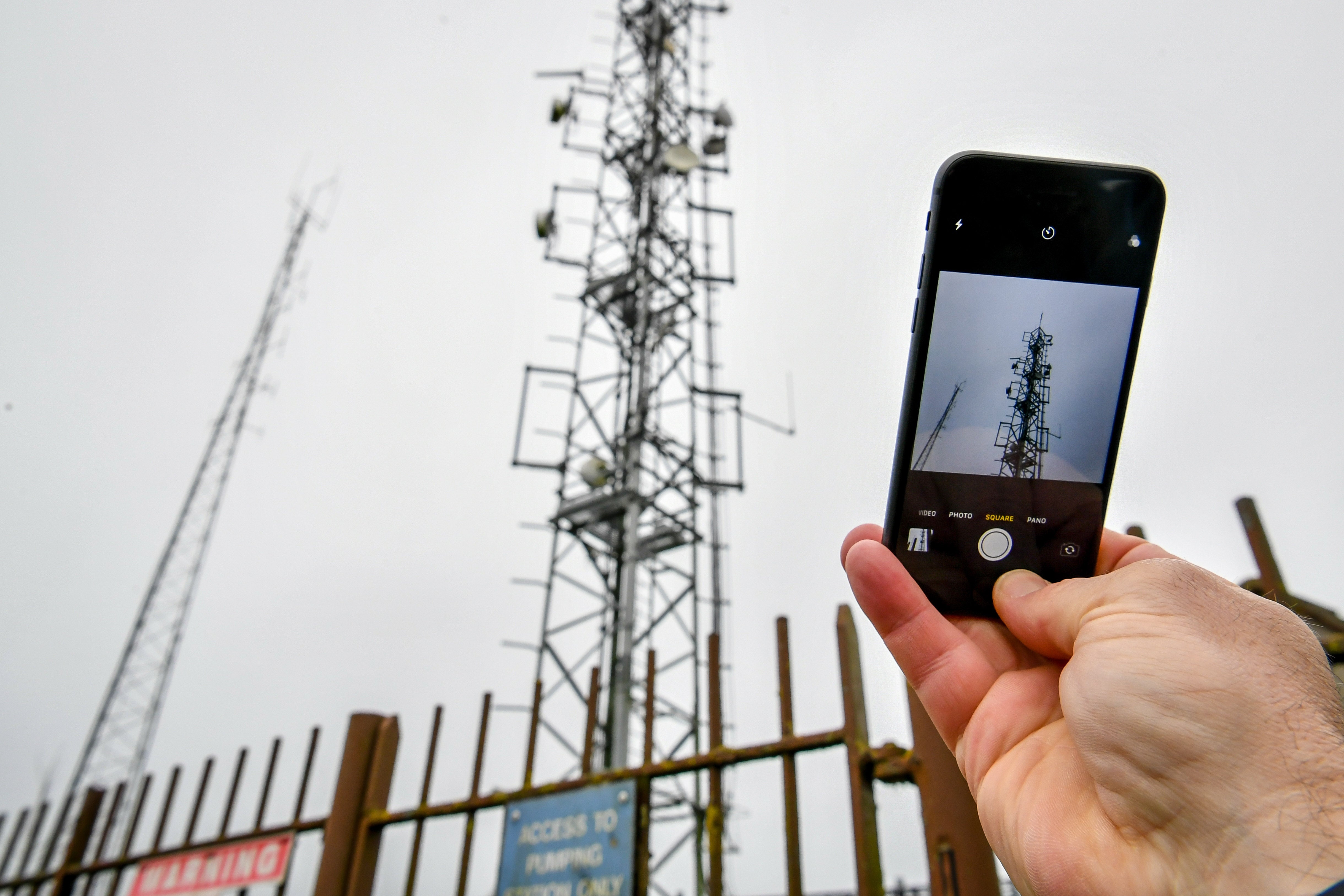Thousands of small landowners to see huge rent cuts from hosting phone masts
MPs have warned the Government that without changes, churches, charities and social clubs could miss out on vital funding.

Your support helps us to tell the story
From reproductive rights to climate change to Big Tech, The Independent is on the ground when the story is developing. Whether it's investigating the financials of Elon Musk's pro-Trump PAC or producing our latest documentary, 'The A Word', which shines a light on the American women fighting for reproductive rights, we know how important it is to parse out the facts from the messaging.
At such a critical moment in US history, we need reporters on the ground. Your donation allows us to keep sending journalists to speak to both sides of the story.
The Independent is trusted by Americans across the entire political spectrum. And unlike many other quality news outlets, we choose not to lock Americans out of our reporting and analysis with paywalls. We believe quality journalism should be available to everyone, paid for by those who can afford it.
Your support makes all the difference.Thousands of churches, charities, social clubs, hospitals and amateur sports clubs will be forced to accept cuts of up to 90% in the rent they receive from hosting mobile phone masts.
New rules proposed by the Government were debated by MPs on Wednesday and faced heavy criticism in the House of Commons from all sides.
The Product Security and Telecommunications Infrastructure Bill is aimed at improving mobile phone connections across the country by reducing infrastructure costs.
But campaigners have warned that multibillion-pound telecoms providers are being allowed to pay tiny rents to landowners compared with previous levels under the new laws.
These include charities and churches who rely on the income to continue operating and could even stall the 5G rollout because other landowners will refuse to host masts due to uneconomical returns.
The Bill comes before Parliament at the same time several phone giants including BT, Virgin Media and Vodafone, have announced inflation-busting price rises, which consumer rights groups have warned will exacerbate the cost of living crisis.
Conservative MP Desmond Swayne told the Commons that constituents have been “intimated and bullied” over the plans and it is causing the digital rollout to stall.
The MP explained: “It’s no wonder that the whole rollout has stalled and no-one wants to give access to a mast because the income isn’t worth it and the consequences are frankly deplorable.
“Small farms, churches and small sports clubs who used to have an income now have had that crashed and they have all the uncertainty and inconvenience of having to continue to host that mast.”
It's no wonder that the whole rollout has stalled and no-one wants to give access to a mast because the income isn't worth it and the consequences are frankly deplorable
He added: “These are the very people, the hearts of our community, that are now identified as the villains for which this Bill brings more power to bring to heel.”
Lucy Powell Labour’s shadow secretary for digital, culture, media and sport, said the move “hands more power to the telecoms companies in court, disincentivising those from coming forward to have phone masts on their land in the first place.”
She added: “The Bill means that those cricket grounds, sports clubs, those churches that we all have in our constituencies, who had phone masts put on their property in good faith, in order to give them income that they wouldn’t otherwise have, are offered these dramatically reduced rents but are forbidden in law from taking down those masts, so they really are between a rock and a hard place.
“It’s going to put many of these community groups at risk but it’s also going to put the rollout at risk as well.”
Liberal Democrat MP Daisy Cooper said landowners in her St Albans constituency had seen rents from the hosting of masts reduced by 98% .
She said: “Would the minister agree that this poses a real risk of the rollout of 5G because there are instances where site owners decide it’s not worth their while any more and they might evict the telecoms companies.”
An independent report published in March last year by the Centre for Economics and Business Research (Cebr) found that revisions to the Electronic Communications code will cost small land and property owners an extra £50 million per year.
Anna Turley, who chairs the Protect & Connect campaign group, said: “Mobile phone giants, who made combined pre-tax profits of £31 billion in 2020 alone, are holding churches, social clubs, hospitals, charities and amateur sports clubs to ransom.
“The changes proposed in the Bill will further enrich shareholders and investors at the global telecoms giants who have repeatedly failed to deliver digital connectivity despite receiving hundreds of millions of pounds of public money.”
Ed Bailey, a Welsh farmer who hosts a mobile mast on his land, said: “We agreed to site a mobile phone mast on the farm in 2016.
“The deal was perfectly fair, we would receive £5,500 a year for the use of our land.
“The operator would have 24/7 access to the mast for years to come and be able to deliver faster broadband to our rural community.
“Six months later, however, the operator went back on its word.
“They reneged on our agreement and revised their offer to just £35 across a ten-year term.”